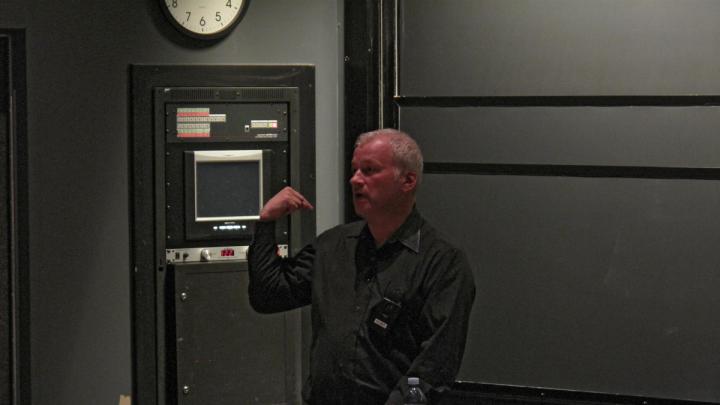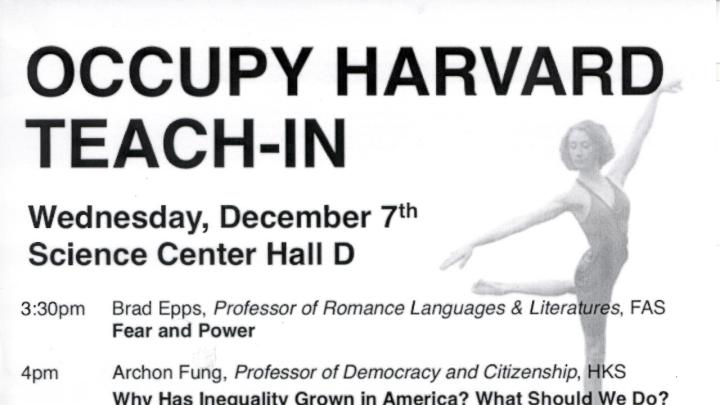The Science Center’s Lecture Hall D was filled almost to capacity Wednesday as Occupy Harvard hosted its first teach-in, aimed at raising awareness of and creating dialogue to support the Occupy Wall Street movement. Nine professors spoke during the four-and-a-half-hour public meeting: seven from various parts of the University, including the Law School, Kennedy School, and Faculty of Arts and Sciences, and two from other schools—Boston College and New York University (NYU).
Professor of Romance languages and literatures Brad Epps urged students and faculty alike not to be afraid to show their support for the movement or speak about Harvard’s administration, as he compared his experiences growing up in the rural South during the civil-rights movement to the current protest.
“At least a dozen senior faculty have expressed fear to me privately of retribution for speaking out,” Epps said, before urging those in attendance to share their own fears. “We might do well to recognize and verbalize our experiences of fear, thus enabling solidarity.”
Occupy Harvard organizers, who have been camped out in locked-down Harvard Yard since November 9, called the teach-in a “first step” in creating more widespread dialogue on campus about the current economic crisis and the vast wealth enjoyed by the top 1 percent of Americans.
The day also featured lectures by NYU professor of social and cultural analysis Andrew Ross, who was scheduled to speak about the student debt-refusal campaign, which asks students to forgo payments on their student loans; Boston College sociologist Juliet Schor, who spoke about “Economics for the 99%”; and Christine Desan, a professor at the Law School.
Justin Jungé, a postdoctoral fellow in psychology and one of Occupy Harvard’s student organizers, said the group will continue to demand changes by the Harvard administration pertaining to investments and other economic injustices.
“One first-stage goal of the Occupy movement is to raise awareness and concern about economic and social injustice,” said Jungé. “The next stage will be to develop concrete plans aiming to correct institutional dysfunctions causing and perpetuating these problems. This teach-in is intended to raise awareness, while also looking forward toward solutions.”
Epps's lecture moved several in attendance to speak, including one student who feared her involvement in the Occupy Harvard protest would result in the retraction of her financial aid, and another who feared her visa would be revoked.
Epps also criticized President Drew Faust for not publicly urging the police officers guarding Harvard Yard to refrain from using violence against student protestors. (For a detailed explication of Faust's views on the Occupy encampment, see this account of her discussion with the Faculty of Arts and Sciences on December 6; she emphasized securing a safe environment for all members of the community.)
“The movement that brings us here together has been charged with past and present violence and hinged with the potential for future violence, even while at least one university president refuses to pledge explicitly that the police are supposedly here to protect the students, eternally infantilized by paternalistic platitudes that discount the fact that almost all students here are old enough to kill and die in war,” Epps said. “The police who are here to protect them should refrain from using pepper spray and violence, and this, our president, refuses to pledge against.”









